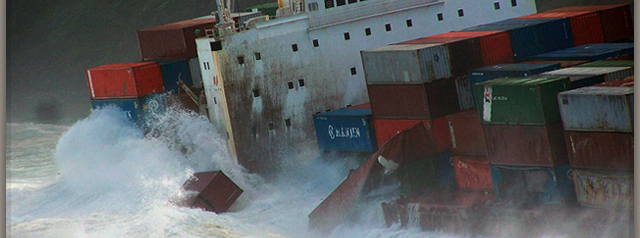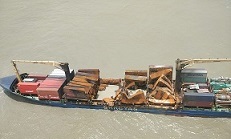Recovering a loss from a third party can be a complex business even when the liability seems obvious. As a result of these potential complications, you will appreciate, that it is not possible to provide a total comprehensive guideline. There are many specialist products carried throughout the world and therefore these guidelines are of a general nature which should cover the vast majority of claims. Obviously, a balance needs to be struck between providing very comprehensive guidelines which are daunting for a straightforward claim, and guidelines which are user-friendly but over-simplistic for the more complex claims.
In cases where you are involved in a large loss or where you have a particularly complex claim, it is always worth asking our Recovery Team at the outset to advise your assured on what is necessary and in this respect our Settling & Recovery Team work very closely together to ensure all aspects are carefully considered at an early stage.
At the time when a claim first arises, the assureds’ focus is naturally on quantifying his claim and pursuing his loss against you as his insurer and he often forgets about his duty to protect your rights of recovery from any responsible third party. Our Settling Team are accustomed to this and ensure that the claimant is made aware of the need to protect his/your rights of recovery. They work hand in hand with our Recovery Team when a loss first arises to ensure that all aspects of the case are properly covered. A successful recovery is often based upon the swift action in the early stages of the loss to ensure that all the evidence is collected, the carrier properly notified, joint surveys are carried out and where the amount of the claim merits it, security obtained from the carrier.
Accordingly, we would suggest that you give your assured the following general guidelines. We have tried to make the language straightforward and easy to understand.
IN THE EVENT OF A CLAIM – IMPORTANT INFORMATION TO PROTECT RIGHTS OF RECOVERY
If you are making a claim on your policy it is your duty to protect the underwriter’s right of recovery from any third party who has responsibility for the loss. It is very important that you act swiftly in obtaining all the relevant documents and information, as well as ensuring that the carrier(s) are involved in steps taken to quantify and mitigate the loss.
This Guideline is of a general nature and we would remind you that you must act reasonably and sensibly to protect your rights of Recovery.
Each case differs, but below are the preliminary steps you should take:
Immediately contact the Dolphin Office named in your policy. We will then assist you in appointing the most suitable Surveyor to assess the cause, nature and extent of the loss. In the meantime, you should gather any evidence you can to prove the condition of the goods and cause of damage. If you can photograph the damage to the goods and any damaged packing that can assist greatly.
Immediately place the relevant parties (B/L issuer / shipowner / Charterers / airline etc) on written notice of your intention to claim. Keep a copy of the notice. A carrier will often try to avoid liability for a claim on the basis that he was not informed in a timely manner (usually 3 days of the cargo arriving for sea-going cargo and 14 days for airfreight). In some cases, recovery claims can be completely lost if notice is not given in time so it is essential that you give written notice to the carrier.
Invite the Carrier to attend a joint survey. The carrier will often try to argue the loss is less than you are claiming for. Discrepancies between the carrier?s delivery document and the loss when you have taken delivery may occur. It is therefore important that the carrier and our own surveyor are included in any discussions on the quantum of the loss and the steps you take to mitigate i.e. salvage sales, depreciation etc. This way, if the carrier is included in these discussions, he will find it more difficult to dispute the claim amount and the steps taken to mitigate the loss at a later stage. This also helps you to obtain your insurer’s agreement on the loss and in finding the best solution for everybody.
Where possible any damaged cargo must be retained until an agreement has been reached between all the relevant parties as to the disposal.
Thereafter, you must preserve all documentation in relation to the shipment and be prepared to make these available to your insurer. Where possible you should obtain ORIGINAL documents or at least clear photocopies.
There are many specialist cargoes shipped across the world and you will undoubtedly be aware of those documents which are relevant to your particular trade. It is your duty to produce all the relevant document or correspondence to the underwriter. This duty continues even after your claim has been paid and you have subrogated your rights to the underwriters. Furthermore, you may need to give evidence if the recovery action is litigated, so you should retain ALL documents for at least 6 years after you have made your claim.
Recovery Department
The typical documents you may be asked to provide are listed below:
a)All ORIGINAL ENDORSED Bs/L, Airway Bills or other relevant contracts of carriage such a CMR documents
b)Charter Party (if referred to in B/L)
c)Commercial Invoice(s)
d)Packing list(s)
e)Details of the manner in which the goods have been packed and information on who carried out the packing
f)If relevant, product specification and details of the intended use for the goods
g)Ship?s Outturn documents / tally sheets / delivery receipts etc. as evidence of damage/loss
h)In the case of bulk or liquid cargoes, Ullage or Draft Survey Report both at Loading & Discharge ports
i)For containerised cargoes, you will need the Equipment Interchange Receipt (EIR) both at the time the container is dispatched from the port and when it is subsequently returned to the carrier.
j)Correspondence notifying the loss to the carrier(s)
k)Correspondence evidencing your efforts to mitigate e.g. Salvage bids together with any costs incurred
l)Copy of Sale Contract (this will be need as proof of your ownership of the goods)
m)Evidence of payment for the goods i.e. bank receipts, letters of credit or any other means of payment.
n)Letter of Authorisation to Dolphin to handle the Recovery Action.
The above guidelines are intended to make the claims process run smoothly for all parties. It also helps to protect your interests if you have any uninsured losses. If you have any questions, please do not hesitate to contact our agents who are on hand to assist you.








